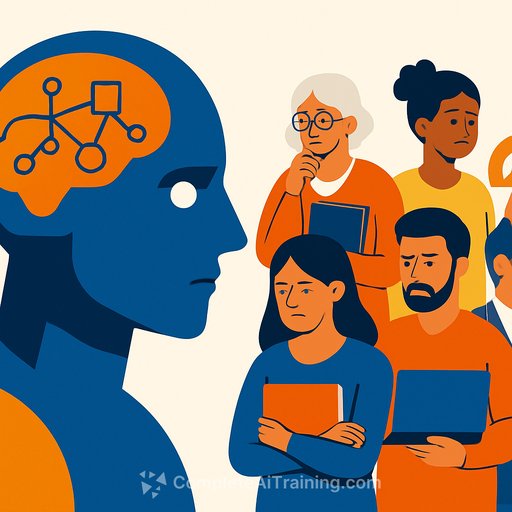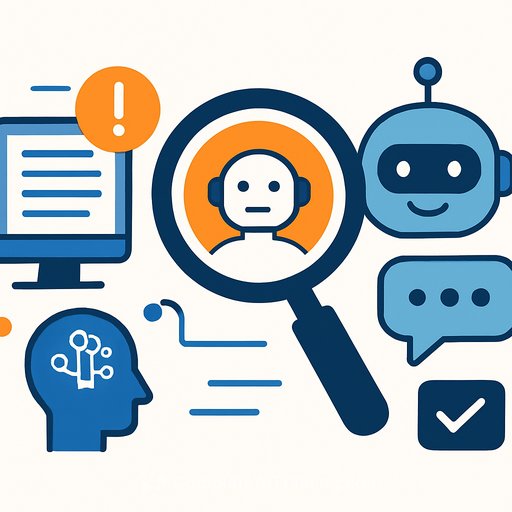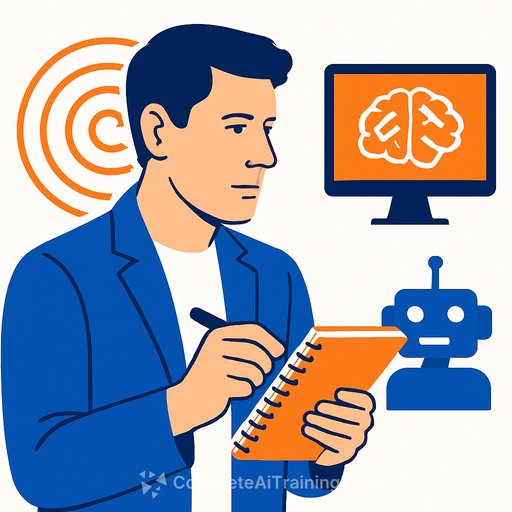Top 5 Education Jobs in Tulsa Most at Risk from AI – And How Writers Can Adapt
AI tools are reshaping education in Tulsa. For writers—especially those involved in curriculum and content creation—this shift brings both challenges and opportunities. Understanding which education roles face the highest AI impact can help you adapt your skills and stay relevant.
Key Roles at Risk from AI in Tulsa Education
The education jobs most exposed to AI automation and augmentation include:
- Postsecondary library science instructors
- Instructional support staff (proofreaders and copy markers)
- K–12 and adult test-prep instructors
- Educational administrative roles (registrars and scheduling clerks)
- Curriculum and content creators (writers and authors of textbooks and worksheets)
For writers, the last category is directly relevant. AI tools can generate quizzes, draft worksheets, and map out concept relationships. However, these benefits come with risks to creativity, coherence, and equity if AI is misapplied.
How AI Is Changing Curriculum and Content Creation
Generative AI can speed up content production by drafting materials quickly and helping differentiate worksheets to suit various student needs. It can also assist in concept mapping, which helps organize lessons effectively.
But unchecked reliance on AI risks diluting your unique voice and introducing bias. AI-generated texts may lack nuance, and without careful review, errors or inappropriate content can slip through. Literacy and critical thinking may suffer if assignments become formulaic or overly AI-dependent.
Practical Steps for Writers to Adapt
- Use AI as an assistant, not a replacement. Let AI handle repetitive tasks like generating quiz questions or first drafts, then add your expertise to refine and personalize the content.
- Develop prompt-writing skills. Learning how to craft effective AI prompts ensures the output aligns with your instructional goals and style.
- Stay involved in content review. Always check AI-generated materials for accuracy, bias, and voice consistency.
- Redesign assignments to require critical thinking. Create tasks that encourage original student responses, reducing the risk of AI misuse.
- Engage in upskilling. Practical courses on applied AI can teach you how to integrate these tools responsibly and efficiently.
Local AI Integration in Tulsa Education
Tulsa schools and institutions are actively exploring AI. For example, Oklahoma State University participates in the Google AI for Education Accelerator, providing free AI training statewide. Regional programs like the National Humanities Center's AIDL Teachers Institute also offer professional development focused on AI in teaching.
For writers seeking structured AI training tailored to workplace skills, consider enrolling in practical courses that focus on prompt engineering and applied AI workflows. These programs help you transform AI from a blunt shortcut into a precise instructional aid.
Balancing AI Benefits and Risks
AI tools can improve efficiency and personalize learning, but integrity and equity must remain priorities. This balance requires clear policies, human oversight, and ongoing measurement of who benefits from AI integration.
For writers, this means collaborating with educators to design AI-supported materials that uphold educational quality and foster student growth.
Additional Resources for Writers
- AI Training Courses by Job Role – Find courses focused on AI skills for educators and content creators.
- Prompt Engineering Courses – Learn how to write effective AI prompts.
Summary
AI is changing education jobs in Tulsa, with writers facing both risk and opportunity. By embracing AI tools thoughtfully, developing new skills, and remaining the final quality gatekeeper, content creators can enhance their work without sacrificing creativity or integrity.
Start small, test AI tools in controlled ways, and seek local training to stay ahead. This approach will help you turn AI into a practical partner rather than a threat.
Your membership also unlocks:





